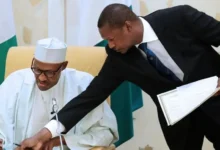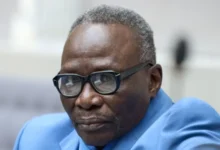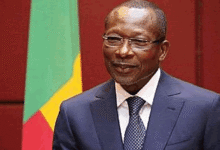Niger drops French place names to honour local heroes

Niger’s military leaders have renamed streets and monuments bearing French names, in the latest move to cut links with the country’s former colonial power.
Avenue Charles de Gaulle in the capital, Niamey, is now Avenue Djibo Bakary in honour of the Nigerien politician who played a key role in the West African country’s struggle for independence.
“Most of our avenues, boulevards and streets… bear names that are simply reminders of the suffering and bullying our people endured during the ordeal of colonisation,” said junta spokesman Maj Col Abdramane Amadou.
Niger’s relationship with France and other Western allies deteriorated after President Mohamed Bazoum was ousted in a coup last year.
Like its military-led neighbours, Mali and Burkina Faso, Niger has courted Russia for military support as a jihadist insurgency threatens the region – and the three countries have clubbed together to form what they call the Alliance of Sahel States.
Under Bazoum, France had more than 1,500 troops stationed in Niger to help fight jihadist groups linked to both al-Qaeda and Islamic State. They all withdrew by the end of last year.
A ceremony was held in Niamey on Tuesday to mark the various name changes, including the avenue once named after a French general, as well as a war memorial that was built to remember those who died in World War One and World War Two.
It now pays “homage to all civilian and military victims of colonisation to the present day”.
Charles de Gaulle was a soldier and politician who formed a French government in exile during World War Two when the Nazi German forces overran France. He became leader of the Free French Forces.
Many Africans in French colonies volunteered to fight for the Free French Forces, though many were also drafted into service.
About 400,000 came from Algeria, Morocco and Tunisia, and more than 70,000 from Senegal and other sub-Saharan colonies. They took part in the Allies’ landings in the south of France in August 1944, which were crucial to ousting the Nazis from the area. —BBC







